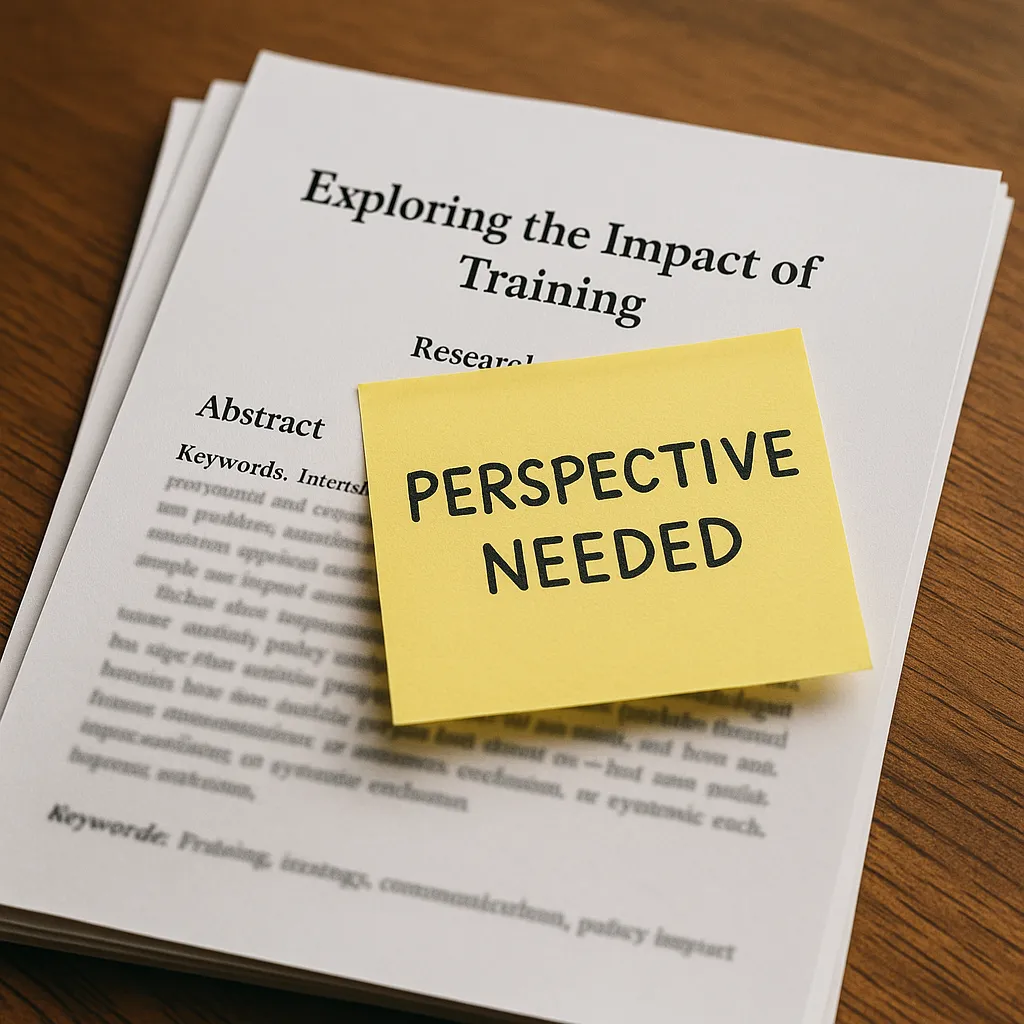Impaired Framing: When Anti-Stigma Work Reinforces the System

Let’s give credit where it’s due: the researchers behind a new study published in Research in Developmental Disabilities were trying to do something positive. They wanted to reduce bias. They wanted to explore how university students’ attitudes toward autistic and physically disabled people might shift after exposure to a training module. That’s not trivial — and in a field still dominated by deficit narratives, it’s a welcome pivot.
But good intentions don’t always produce good frameworks.
The study — Exploring the impact of training on explicit and implicit attitudes toward autism spectrum disorder and physical disabilities in university students — examines “explicit and implicit attitudes” toward autism. Yet nowhere in the authorship or advisory credits is there an autistic name, at least none that I can see. No lived experience shaping the questions. No sign that autistic people were invited to do more than serve as the object of other people’s opinions.
That matters — because it replicates a pattern. This isn’t isolated — many studies in this space prioritize changing attitudes over changing access.
When Anti-Stigma Work Reinforces the System
Bias is not just a personal feeling. It’s a structural issue. And yet, so much anti-stigma research still orbits around the comfort and cognition of the non-disabled. The “problem” becomes how non-autistic people feel about us — not how autistic people are impacted by policy, inaccessibility, or systemic exclusion.
This paper is a classic case. It treats autism as something to be understood from the outside in. It offers no evidence that autistic people were asked what matters, what works, or what harm might be done by reinforcing tired stereotypes — even unintentionally. It praises reduced prejudice — amen to that — but leaves the actual systems of exclusion intact.
At worst, this is a kind of benevolent exclusion: well-meaning, polite, and still fundamentally extractive.
A Better Frame is Possible
And yet — this kind of research could evolve.
If studies like this included autistic co-authors — if they treated our insight as a starting point rather than a footnote — the impact could be real. We do need allies. We do need researchers asking better questions. These scholars are doing that. And we need more studies that don’t just aim to fix how others see us, but change how systems respond to us.
It’s okay to start somewhere imperfect. What matters is how you grow.